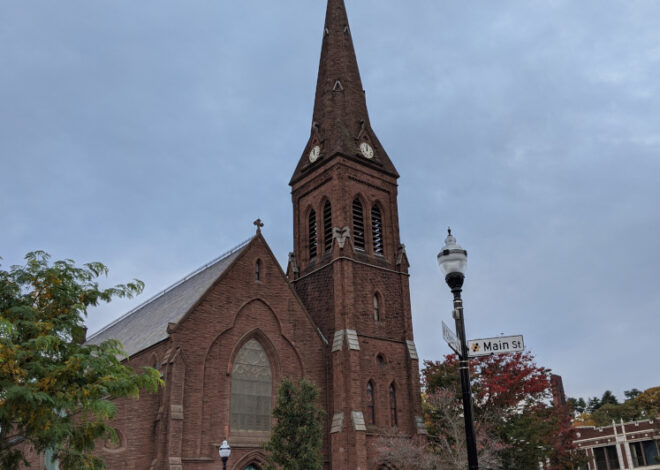
Fee Power Requested by Council Resolution Apparently Might Apply to Nonprofits, Others
A City Council resolution proposes to ask the state legislature to let municipalities charge fees, that, if permitted by the state, apparently might be imposed on charitable non-profits, houses of worship, religious schools, religious cemeteries and other “tax exempt” “entities.”

The resolution, proposed by the Council Republican leaders, Ald. Kristian Rosado (R-2) and Ald. Daniel Salerno (R-AL), proposes that the City Council,
officially prompts the Connecticut General Assembly to adopt legislation that allows municipalities the option to create and impose a service fee on entities that are classified tax exempt as a feasible way to stabilize the individual tax burden of taxpayers in The City of New Britain.
The resolution says that,
The City of New Britain currently consists of 48% non-taxable property averaging roughly $1 billion in assessed value; there is an apparent need to address the financial strain and burden this puts upon both the City of New Britain and the taxpayers of the City of New Britain.
While the Council resolution does not say what organizations might have to pay such fees, among the “entities” that state law appears to exempt from property taxation, that apparently might potentially be subject to the proposed “service fees,” include:
- “Houses of religious worship.”
- Nonprofit organizations, “organized exclusively for scientific, educational, literary, historical or charitable purposes.”
- “Property of religious organizations used for certain purposes,” such as schools, daycare facilities or parish houses.
- “Property held for cemetery use” by religious organizations.
- “Houses used by officiating clergymen as dwellings.”
- Charitable nonprofit recreational facilities.
- Nonprofit hospitals.
The Council resolution also does not say how the proposed “services fees” might work, other than that they would be imposed specifically on, “entities that are classified tax exempt.” But the issue of taxation of nonprofit organizations and religious denominations is periodically discussed by the state legislature.
While some municipal governments seek to do so as a means of increasing property tax revenue, nonprofit organizations and religious charities have pushed back, arguing that taxation of their organizations would only take resources away from services for the residents of the very municipalities that would impose the tax.
The resolution is on the agenda of the February 26, 2020 City Council meeting.



